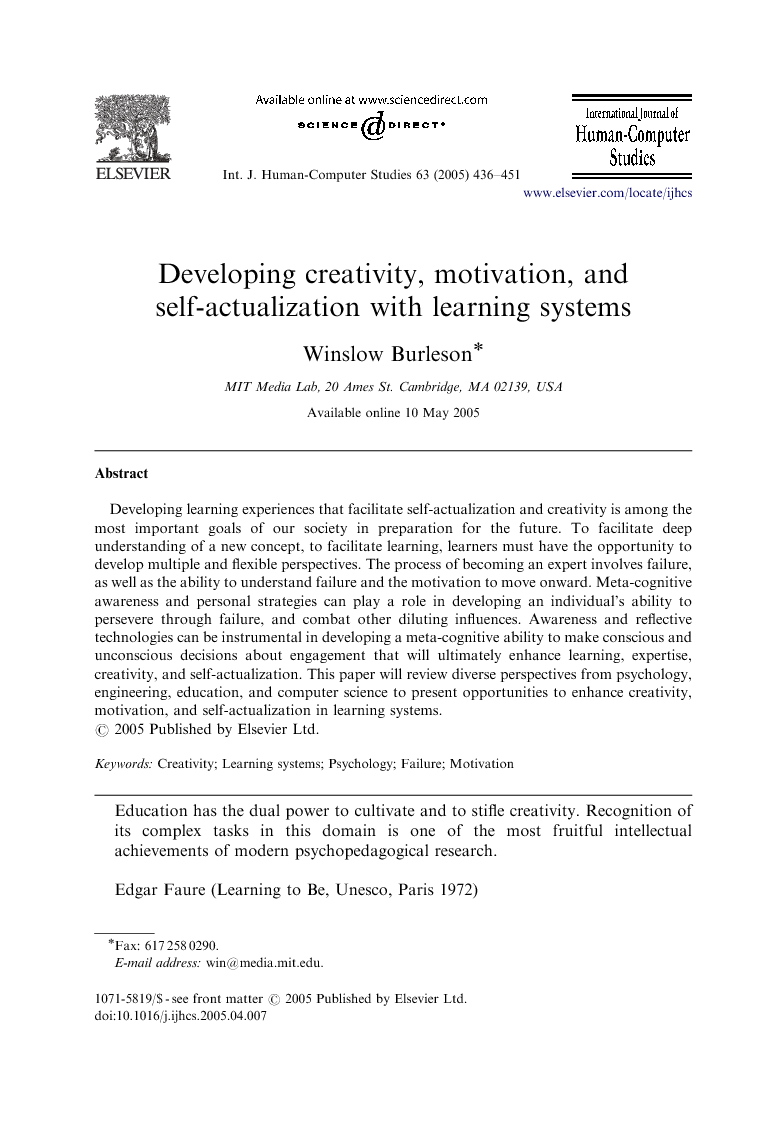ترجمه فارسی عنوان مقاله
توسعه خلاقیت، انگیزه، و خود شکوفایی با سیستم یادگیری
عنوان انگلیسی
Developing creativity, motivation, and self-actualization with learning systems
| کد مقاله | سال انتشار | تعداد صفحات مقاله انگلیسی |
|---|---|---|
| 32059 | 2005 | 6 صفحه PDF |
منبع

Publisher : Elsevier - Science Direct (الزویر - ساینس دایرکت)
Journal : International Journal of Human-Computer Studies, Volume 63, Issues 4–5, October 2005, Pages 436–451
ترجمه کلمات کلیدی
خلاقیت -
سیستم های یادگیری -
روانشناسی -
شکست -
انگیزه
کلمات کلیدی انگلیسی
Creativity;
Learning systems;
Psychology;
Failure;
Motivation

